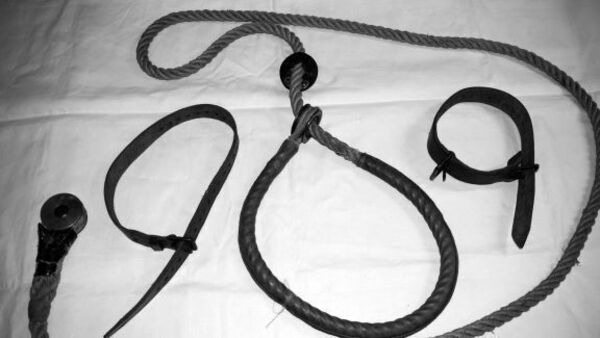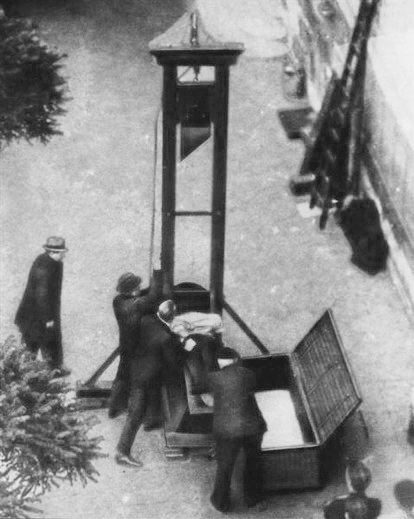Your cart is currently empty!
Hitmen, Hangmen And Hypocrisy.
‘I have come to the conclusion that executions solve nothing, and are only an antiquated relic of a primitive desire for revenge which takes the easy way and hands over the responsibility for revenge to other people.’ Britain’s former chief public executioner Albert Pierrepoint in his 1974 memoir ‘Executioner: Pierrepoint.’ I know, I…

‘I have come to the conclusion that executions solve nothing, and are only an antiquated relic of a primitive desire for revenge which takes the easy way and hands over the responsibility for revenge to other people.’
Britain’s former chief public executioner Albert Pierrepoint in his 1974 memoir ‘Executioner: Pierrepoint.’
I know, I know. There wasn’t meant to be another post today, it’s just that something occurred to me while considering the role of a public executioner in relation to the attitudes and beliefs of the ‘Hang ’em and flog ’em’ brigade. It doesn’t just apply to British folk with a fondness for the noose, though, but to death penalty supporters everywhere and they’re probably going to find this offensive.
Question: What’s the difference between an executioner and a professional assassin?
Answer: Almost Nothing.
A hitman is employed, either as part of a criminal organisation such as the Mafia or the Triads or on a freelance basis, to dispose of people on behalf of their employers. Their victims are people that their employers consider a threat, dangerous, undesirable or otherwise worth having killed. Whether on orders or for a fee, the assassin is a skilled professional whose profession is causing the deaths of people marked for death at the behest of others. They’re private contractors working out of criminal loyalty or for personal profit. They don’t have a legal mandate and they’re not public servants.
An executioner is also a skilled professional whose profession is the disposal of people deemed a threat, dangerous, undesirable or otherwise worth having killed. It’s just that the executioner is employed by the State and does have a legal mandate to kill professionally. They don’t do it for the pay (which is seldom high), they don’t do it on a whim, but they are essentially contract killers in public service rather than private practice.
It’s not as though an executioner can claim the same defence as a member of the armed forces or an armed police officer. They don’t have the easily-understood, ready-made justification of defending themselves and their colleagues. They can’t say ‘It was him or me.’ It is, after all, pretty difficult to claim with a straight face that somebody securely strapped into an electric chair or tied to a post in front of a firing squad poses a direct physical threat. No, executioners and assassins are both employed to perform the pre-determined, clinical disposal of other people by whoever engages them to do so.
Now, where does that leave the ‘Hang ’em and flog ’em’ brigade? In their view of themselves, doubtless at a safe ethical and moral distance from either professional assassins or those who employ them. Contract killing, those who do it and those who hire them are somehow something different and removed from ‘respectable’ society. Those involved are a lower class of human. By hiring one person to dispose of others those involved are evil, violent, cruel, selfish, morally and ethically bankrupt.
Curious then, isn’t it, that the moral majority think their own willingness to do exactly the same thing is so different. Anybody who offers a briefcase full of used banknotes to some backstreet gunman is a bad person. Anybody who gives an executioner a legal warrant and a far smaller fee is defending society from the forces of darkness. Yet they’re engaged in exactly the same process. An order’s given, a payment’s made, somebody dies. The difference between public service and private practice remains, but the similarities remain exactly the same.
Bottom line:
If you support employing professional killers as public servants, seeking to protect yourself against people you consider enough of a threat, then you’re no different to a private citizen who feels threatened enough that they resort to hiring a hitman. You may choose to dress it up in legalistic finery, but that also comes with its own measure of hypocrisy. You might like to think that hiring somebody else to do the dirty work for you somehow distances you from it, that your hands are somehow cleaner.
They aren’t.




Leave a Reply